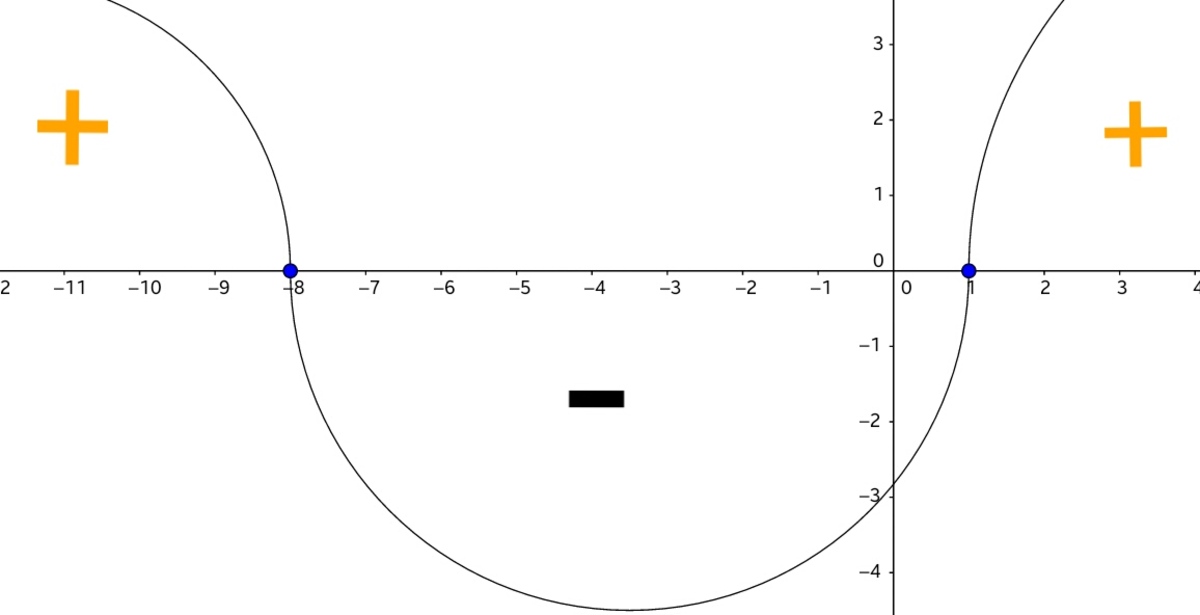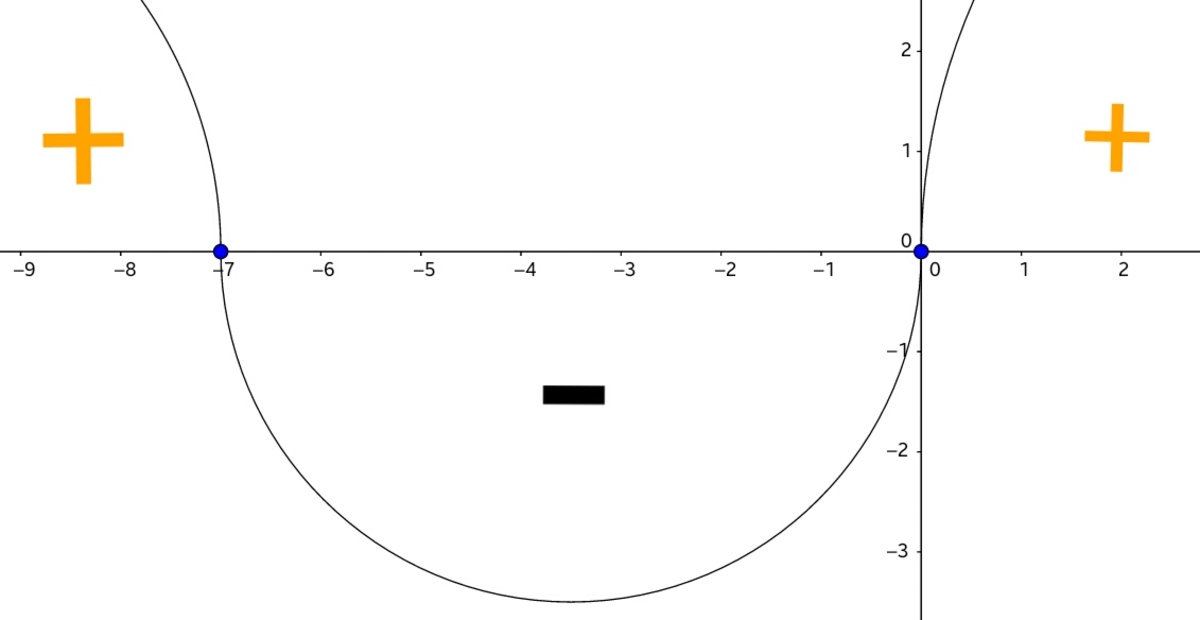Inequality with log
lo g 4 lo g 3 lo g 2 ( x 2 + 7 x ) ≥ 0
If the ranges of real number x are ( − ∞ , a ] ∪ [ b , ∞ ) , where a and b are integers , then find b a .
The answer is -8.00.
This section requires Javascript.
You are seeing this because something didn't load right. We suggest you, (a) try
refreshing the page, (b) enabling javascript if it is disabled on your browser and,
finally, (c)
loading the
non-javascript version of this page
. We're sorry about the hassle.
2 solutions
Simple and Sweet Solution..:)
lo g 4 lo g 3 lo g 2 ( x 2 + 7 x ) lo g 4 lo g 3 lo g 2 ( x 2 + 7 x ) x 2 + 7 x x 2 + 7 x − 8 ( x + 8 ) ( x − 1 ) x ≥ 0 ≥ lo g 4 lo g 3 lo g 2 2 3 ≥ 8 ≥ 0 ≥ 0 ∈ ( − ∞ , − 8 ] ∪ [ 1 , ∞ )

But we have to also check if the argument of the given expression is more than 0 as it becomes negative in a contrary situation.
x 2 + 7 x x ( x + 7 ) x > 0 > 0 ∈ ( − ∞ , − 7 ) ∪ ( 0 , ∞ )

So, our final answer is [ ( − ∞ , − 8 ] ∪ [ 1 , ∞ ) ] ∩ [ ( − ∞ , − 7 ) ∪ ( 0 , ∞ ) ] = ( − ∞ , − 8 ] ∪ [ 1 , ∞ )
So, b a = 1 − 8 = − 8 . 0 0
Nice answer +1.. but you still need to calculate the domain
lo g 3 lo g 2 ( x 2 + 7 x ) > 0
Log in to reply
Actually i am still editing my soltion :P I didnt want to lose all my work if i make a small mistake and screen closes.
Not required at all..
lo g 4 lo g 3 lo g 2 ( x 2 + 7 x ) ≥ 0 ⟹ lo g 3 lo g 2 ( x 2 + 7 x ) ≥ 1 > 0 ( O b v i o u s l y )
⟹ lo g 2 ( x 2 + 7 x ) ≥ 3 > 0 x 2 + 7 x ≥ 8 > 0
So we basically don't need to check for domain at all, the inequality formed at last i.e x 2 + 7 x − 8 ≥ 0 will take care.
lo g 4 lo g 3 lo g 2 ( x 2 + 7 x ) ⟹ lo g 3 lo g 2 ( x 2 + 7 x ) lo g 2 ( x 2 + 7 x ) x 2 + 7 x ⟹ x 2 + 7 x − 8 ( x + 8 ) ( x − 1 ) ⟹ x ≥ 0 ≥ 4 0 = 1 ≥ 3 1 ≥ 2 3 ≥ 0 ≥ 0 ∈ ( − ∞ , − 8 ] ∪ [ 1 , ∞ )
⟹ b a = − 8